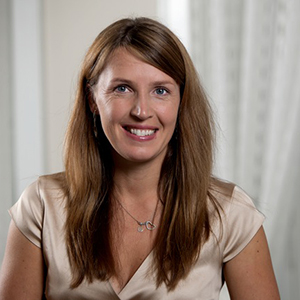Counting of cells and even smaller particles, such as single molecules of DNA and viruses, can be carried out using resistive-pulse sensing (RPS). The particles move through a pore set up with a flow of current across it. When a particle goes through, it changes the resistance, which can be measured and used to count the particles and even size them. The difficulty is that small molecules in a heterogeneous mixture get lost amongst the large molecules and remain undetected as the pore must be large enough for the largest particle. The signal-to-noise ratio is the limiting factor on sensitivity.
 Researchers at the University of California, Berkeley, USA, led by Lydia Sohn present solutions to these limitations in this HOT article with a method they title node-pore sensing (NPS). Instead of one uniform pore width, the microfluidic device has a pore with a sequence of nodes down the length of the pore channel. The nodes in their device are larger than the rest of the channel. The presence of these nodes means that the device sensitivity is three orders above that of other RPS sensors. The simple method enables the spacing, number and size of these nodes to be changed.
Researchers at the University of California, Berkeley, USA, led by Lydia Sohn present solutions to these limitations in this HOT article with a method they title node-pore sensing (NPS). Instead of one uniform pore width, the microfluidic device has a pore with a sequence of nodes down the length of the pore channel. The nodes in their device are larger than the rest of the channel. The presence of these nodes means that the device sensitivity is three orders above that of other RPS sensors. The simple method enables the spacing, number and size of these nodes to be changed.
The number and spacing of the nodes changes the normal pulse signal output accordingly, producing a very identifiable corresponding rise and fall pattern. Using this signature, the particle can be detected even with usually problematic signal-to-noise ratios. By changing the flow rate and specifically designing the node arrangement, this signature pattern can be controlled to distinguish even very small particles through a large pore. The size range of particles that can be measure with the one pore is therefore considerable.
This article is well worth a read, offering numerous advantages over current devices and offering the potential for point-of-care analysis. It’s free to access for the next four weeks*, read it by clicking the link below:
Node-pore sensing: a robust, high-dynamic range method for detecting biological species
Karthik Balakrishnan, George Anwar, Matthew R. Chapman, Trongtuong Nguyen, Anand Kesavarajud and Lydia L. Sohn
DOI:10.1039/C3LC41286E
*Free access to individuals is provided through an RSC Publishing personal account. Registration is quick, free and simple










